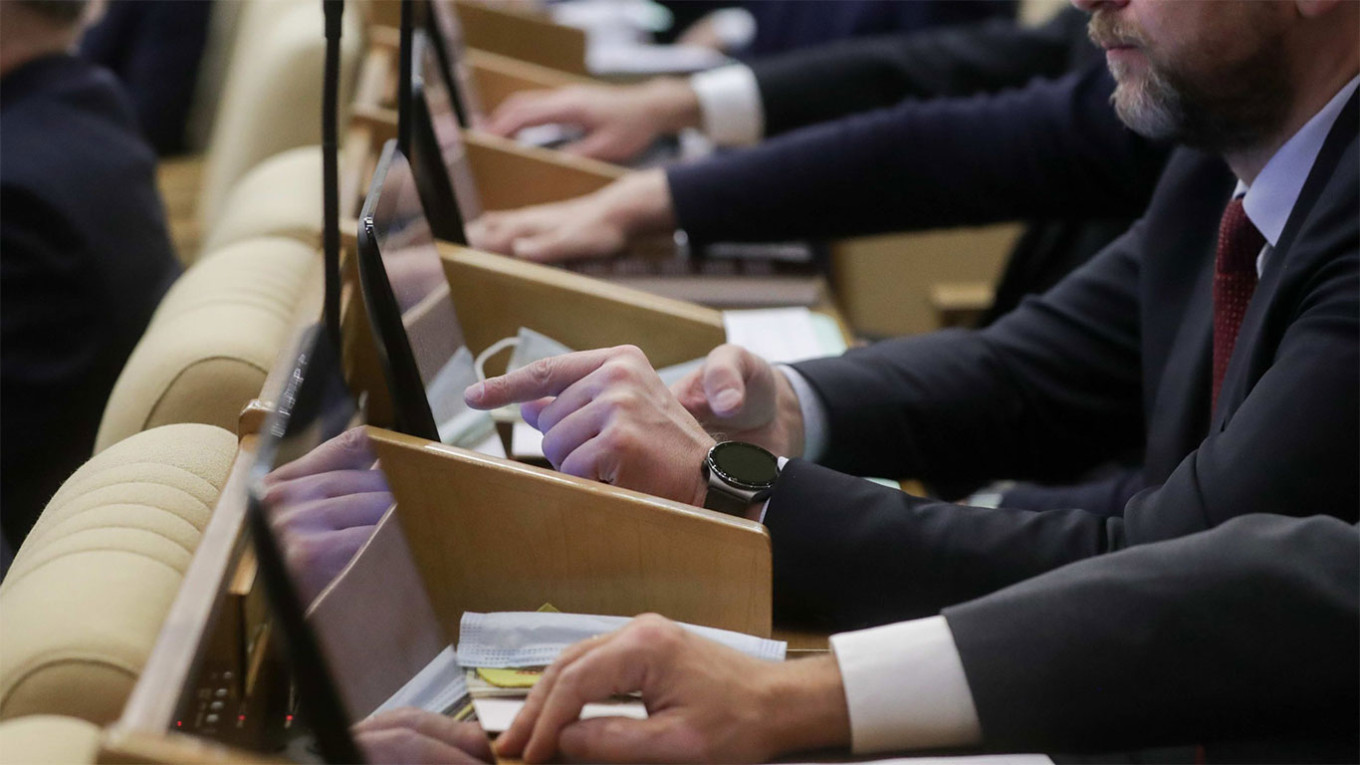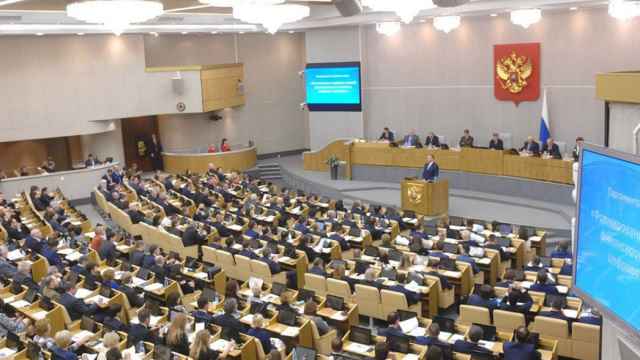Russia’s lower-house State Duma on Wednesday passed a bill that would ban advertisers from working with “foreign agents,” a move that will likely make it next to impossible for independent media outlets hit with the designation to earn money.
If signed into law, businesses would no longer be able to advertise their products and services with individuals and legal entities that the Justice Ministry has branded as “foreign agents.”
So, too, would “foreign agents” be prohibited from advertising their own products and services through businesses.
According to the bill, running afoul of the law twice in one year could land “foreign agent” violators in prison for up to two years. Advertisers, meanwhile, could face up to 300,000 rubles ($3,250) in fines.
“This is not our first and it won’t be our last bill in the area of security given the challenges and threats” facing Russia, said lawmaker Vasily Piskarev, who chairs the State Duma’s anti-corruption committee.
“Our adversaries should have realized long ago that the more pressure they exert on us, the tougher our response will be,” he added.
All 402 State Duma members present at Wednesday's vote supported the bill, which was co-authored by 395 lawmakers.
The bill must now obtain the approval of the upper-house Federation Council and then be signed into law by President Vladimir Putin.
Following the bill's passing in the State Duma, Russian journalist Katerina Gordeeva, who was designated a “foreign agent” in 2022, announced she was shutting down her popular YouTube interview series.
“Advertising is now a crime,” she wrote on the Telegram messaging app.
“It’s difficult to believe someone would be willing to run afoul [of the bill if passed] out of the kindness of their heart, bringing risks to their business, themselves and their loved ones,” the journalist added.
Hundreds of news outlets, organizations, journalists, businesspeople and cultural figures have been branded “foreign agents” — which carries negative Soviet-era connotations — since Russia introduced the legislation in 2012.
A Message from The Moscow Times:
Dear readers,
We are facing unprecedented challenges. Russia's Prosecutor General's Office has designated The Moscow Times as an "undesirable" organization, criminalizing our work and putting our staff at risk of prosecution. This follows our earlier unjust labeling as a "foreign agent."
These actions are direct attempts to silence independent journalism in Russia. The authorities claim our work "discredits the decisions of the Russian leadership." We see things differently: we strive to provide accurate, unbiased reporting on Russia.
We, the journalists of The Moscow Times, refuse to be silenced. But to continue our work, we need your help.
Your support, no matter how small, makes a world of difference. If you can, please support us monthly starting from just $2. It's quick to set up, and every contribution makes a significant impact.
By supporting The Moscow Times, you're defending open, independent journalism in the face of repression. Thank you for standing with us.
Remind me later.






